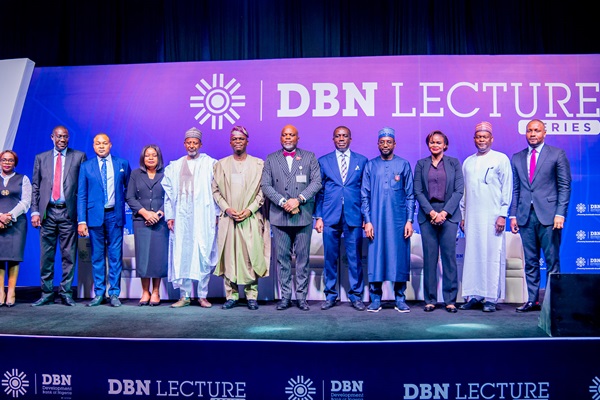
The director-general of the National Information Technology Development Agency (NITDA), Mallam Kashifu Abdullahi has touted the digitisation of the nation’s micro, small and medium enterprises (MSMEs) as the key to achieving sustainable economic growth.
In his keynote speech titled “Digital Nigeria – Leveraging Technology to Improve Ease of Doing Business for MSMEs,” at the Development Bank of Nigeria (DBN) 2023 Annual Lecture Series in Abuja, Abdullahi underscored the transformative impact of technology on businesses in the 21st century.
He began by highlighting the rapid pace of technological innovation and its increasing integration into business operations globally. Citing a 2020 PwC MSME survey, he emphasised that MSMEs constitute a significant portion of Nigeria’s business landscape, accounting for approximately 96 per cent of all businesses, contributing 49 per cent to the national Gross Domestic Product (GDP) and employing 84 per cent of the country’s workforce.
The DG shared insights into the streamlined process of starting a business enabled by technology. He pointed out that the government’s commitment to inclusivity and digital infrastructure access has facilitated a simplified business registration process, eliminating the need for individuals to travel to Abuja for the same purpose. Abdullahi emphasised, “It is no longer a privilege but a necessity to ensure everyone has access to digital infrastructure”.
In addressing the imperative of digital transformation, Abdullahi stressed, “With the way we are increasingly using systems to make decisions and a whole lot of things, there is a need to carry everyone along as we cannot afford to be left behind in Nigeria, Africa and the rest of the world”.
The DG expressed optimism about Nigeria’s position in the global tech ecosystem, highlighting the country’s leadership in unicorn counts on the continent. He stated, “Nigeria has the largest vibrant tech ecosystem in Africa, with five of the seven known unicorns originating in Nigeria”.
Abdullahi reiterated the importance of a legal framework conducive to digital infrastructure investment, asserting, “We are rounding off with a legal framework that will make it easier for investors to come and invest in digital public infrastructure because this will make it a lot easier for SMEs and would aid the automation of governance”.
Addressing the potential of MSMEs in contributing to Nigeria’s GDP through digitisation, the DG urged the bank to extend funding access to startups. He emphasised that startups and MSMEs are essentially the same, differing only in nomenclature. Abdullahi projected that if all SMEs in Nigeria embraced digitization, the country could add $60 billion to its economy.
“The power of technology allows you to start small, but in the long run, you will definitely grow exponentially if you continue to add value to your business,” affirmed the DG.
Elaborating on the strategic roadmap of the National Information Technology Development Agency, Abdullahi reiterated the Federal Government’s commitment to digital transformation. He emphasized the need for collaborations with key development partners and the establishment of strong institutions to execute digital visions in Nigeria.
In his welcome speech, the CEO of the Development Bank of Nigeria, Dr. Tony Okpanachi acknowledged the transformative impact of the internet on human interaction and commerce. While recognising the challenges of security and poor infrastructure in Nigeria, he stressed the need for technology and a digitized business environment to overcome these obstacles.
Okpanachi highlighted the crucial role of MSMEs in Nigeria’s economic growth, emphasising their contribution to poverty reduction, employment creation and shared wealth. He noted that leveraging technology within MSME operations could enhance efficiencies, addressing one of the key obstacles to doing business in Nigeria.
The CEO affirmed the DBN’s commitment to advocating for MSME financing in Nigeria through its annual lecture series. The event marked the bank’s 6th anniversary and featured speakers from diverse fields, engaging in discussions on driving sustainable business growth with technology adaptable to a green economy. The keynotes and panel sessions explored innovative ways to foster innovation, resilience, and profitability for MSMEs in Nigeria’s evolving digital landscape.


